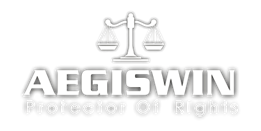
Cheque Bounce

Cheque Bounce Notice Format
When a cheque entered from the drawer of the cheque is presented to the bank for payment, and it gets rejected and returned by the bank overdue, the cheque is said to be “bounced”. The drawer of the cheque is the person who signs the cheque for payment of the quantity to the payee. The payee is the person who receives the cheque and presents it to the bank for entering the payment of the quantity mentioned in it.
There are several reasons where the cheque can bounce, similar as wrong date, mismatch of the numbers and words of the payment quantity, mismatch of hand or damaged cheque. But these are minor reasons for cheque drive, and hence another cheque can be issued by the drawer amending the mistake in the cheque and pay the quantity to the payee.
When the cheque is supplied to the financial institution for charge, and it bounces, the financial institution will go back the take a look at in conjunction with a go back memo pointing out the purpose for the go back. Where the financial institution rejects the cheque because of insufficient budget, note also can be issued to the drawer, and felony movement may be taken in opposition to him.
When the cheque bounces due to inadequate finances and is returned by the bank, the payee should shoot a legal notice to the drawer of the cheque asking to make the payment. Cheque drive is an offence under Section 138 of the Negotiable Instruments Act, 1881 in India. The legal notice acts as a suggestion to the drawer of the cheque that the quantity mentioned in the cheque needs to be paid by him, or additional legal action will be taken against him under the Negotiable Instruments Act in the separate court.
Contents of Cheque Bounce Notice
- The contents of the Cheque Bounce Notice are-
- The name and address of the locker of the cheque.
- The name and address of the payee.
- Information of the cheque presented to the bank for payment.
- Details of the cheque number, date and quantity.
- Date of return of cheque.
- Reason for cheque drive.
- Request for the immediate arrangement of the payment of the quantity.
- Reference of Section 138 of the Negotiable Instruments Act.
Legal Action For Cheque Bounce
When the cheque bounces, the first step is to transfer the cheque drive notice to the locker and request him to pay the amount. However, also legal action can be taken against him, If he doesn't misbehave with the notice. For initiating legal action and filing a suit in the court against the locker, the following conditions must be satisfied-
The payee should present the cheque within three months of the date of its issue.
The bank should reject the cheque due to inadequate finances.The payee makes a demand for the payment of the cheque quantity by issuing a cheque drive notice in writing to the locker by post.
The cheque drive notice must be transferred within thirty days of the damage of information of return of cheque by the bank.
The locker fails to pay the quantity of cheque to the payee within fifteen days of damage of the cheque drive notice.
Still, legal proceedings can be initiated in the court within thirty days from the expiry of fifteen days time period for cheque quantity payment after damage of cheque drive notice by the locker, If the below conditions are satisfied. The suit for cheque drive can be initiated in the court of the town where the cheque was presented for payment. The case will be filed under Section 138 of the Act.
Section 138 Of The Negotiable Instruments Act
Section 138 of the Negotiable Instruments Act provides that cheque drive for inadequate finances is an offence and punishable with imprisonment. It provides that where a person draws a cheque on an account maintained by him for the payment of capitalist to another person, and it's returned by the bank overdue because of inadequate finances to recognize the cheque, the locker of the cheque commits an offence.
The person must draw the cheque for discharge of any fairly enforceable debt or liability. The cheque must be returned by the bank because the quantity of capitalist standing to the credit of the locker’s account is inadequate or exceeds the quantity arranged to be paid from the locker’s account by an agreement made with the bank.
The locker can be penalized with imprisonment for a term not exceeding two times or a penalty that can extend to twice the quantity of the cheque, or both for the offence of cheque drive.
Section 144 Of The Negotiable Instruments Act
Section 144 of the Negotiable Instruments Act provides that where cheque drive has taken place by cheque issued by a company, also every person in charge and responsible for the conduct of the business of the company at the time the offence was committed is ashamed of an offence. This section provides that the cheque brio for inadequate finances is an offence when the locker of the cheque is a company.
When the locker of the bounced cheque is a company, every person in charge and responsible for conducting the business of the company and the company is ashamed of the offence of cheque drive and can be penalised consequently.
Where a cheque drive offence is committed by a company, and it's proved that the offence was committed by the company with the clearance, negligence or convenience of the director, clerk, director or other officers of the company, similar persons will be allowed ashamed and liable to be penalised consequently.
